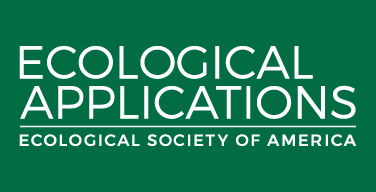
Understanding Forest Ecosystems
A UC Santa Barbara forest scientist has been selected as an early career fellow of the Ecological Society of America for her work elucidating how sylvan ecosystems respond to climate change.

A UC Santa Barbara forest scientist has been selected as an early career fellow of the Ecological Society of America for her work elucidating how sylvan ecosystems respond to climate change.

A new article in the Bulletin serves as a how-to guide for students to become professional ecological field technicians.

Findings recently published in Ecosphere show that areas in Maine with more recent and more intense timber removal activities were associated with population declines of martens and fishers.

UC Riverside ecologists and their UC collaborators applied a new theory for predicting biodiversity to the high mountain streams of California’s Sierra Nevada.

A new paper from the Wuhan Botanical Garden of the Chinese Academy of Sciences explores the mechanisms that shape the organization and diversity of herbivore communities, providing a new perspective on the improvement of biological control efficiency.

Landscapes with diverse fire histories – or pyrodiverse landscapes – have higher diversity of pollinators, as a recent study by USDA Forest Service scientist Michael Ulyshen shows.

A recent study evaluates the social and ecological drivers of the voting patterns of the over 3 million Coloradans who voted for or against wolf restoration via Proposition 114.

New research recently published in Ecological Applications uses acoustic telemetry and machine learning to shed light on the complex ecological relationships between sharks and game fish.

Spotted hyenas adjust to a decreased presence of migratory prey in their territories induced by climate change, according to a paper recently published in Ecosphere.

In a new review paper, scientists synthesize the many contributions of Indigenous knowledge and its importance as a distinct but complementary way of knowing to Western science.

In a newly published study, the researchers suggest that the best pest management outcomes may occur when growers encourage biological control — in the form of pests’ natural enemies — by planting cover crops and avoiding broad-spectrum insecticides as much as possible.

Nighttime light pollution levels are increasing the most in the southeastern United States, Mexico, and Central America, according to findings based on year-round data collected over the last two decades in the Western Hemisphere.

A UBCO researcher says collaborative recovery moves Klinse-Za caribou from the brink of extinction.

Larger and strictly protected areas are clearly more effective, according to biologists from Utrecht University and international colleagues. Examining the biodiversity of more than 700 natural areas worldwide, their study could help pinpoint the most suitable areas for protection.

A new study finds that preserving tree cover may be essential in helping gray foxes survive alongside coyotes in rural areas.

A new study published in Ecological Applications by researchers from the Center for Global Discovery and Conservation Science discovered aircraft-measured spectral differences in the foliar traits of ʻŌhiʻa lehua trees that would later develop visible signs of Rapid ʻŌhiʻa Death.

Two newly published research studies from the U.S. Geological Survey show that, depending on their size and body condition, invasive tegu lizards from South America could survive in cooler, northern climates.

Scientists from the Ryan Institute in NUI Galway have published the first record of a Noble False Widow spider feeding on a protected species of Pipistrelle bats in the UK.

New research provides a comprehensive assessment of the potential impacts of emerald ash borer and associated adaptation strategies on wildlife species dependent on black ash wetland forests.

Researchers from around the U.S., Canada, and Switzerland using remote sensing to study plant communities report that plant traits we can sense from satellites and airplanes can provide valuable insights into what’s going on beneath the soil.
Notifications